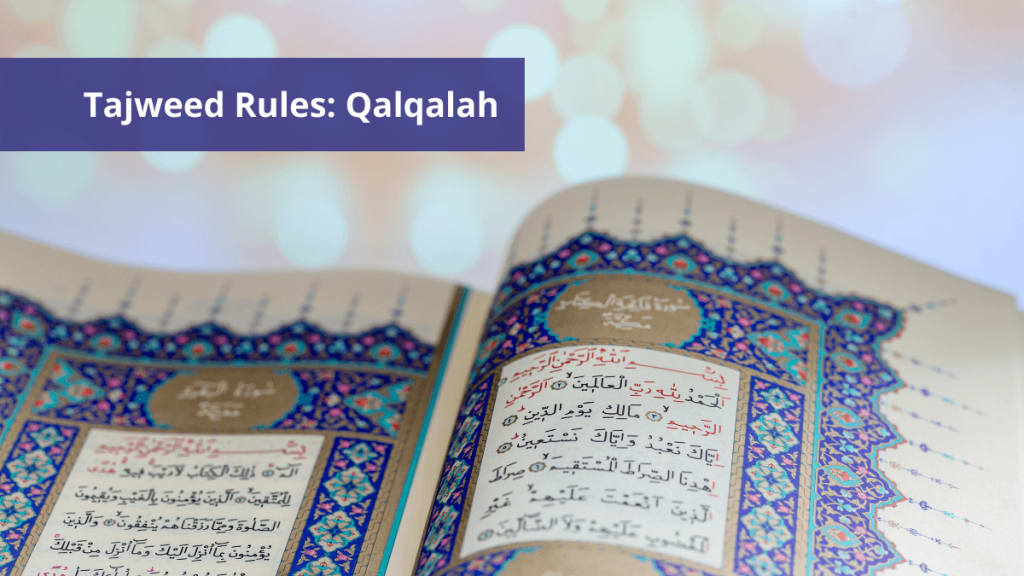Tajweed Meaning
The Quran is the holy book of Islam and is regarded as the word of Allah revealed to the Prophet Muhammad (PBUH).

Reciting the Quran is an act of worship that Muslims perform regularly, and the art of reciting it in a beautiful and melodious manner is known as Tajweed.
What is Tajweed?
Tajweed Meaning: Tajweed is derived from the Arabic word "jawaada," which means "to beautify." It is the science of Quranic recitation that involves the proper pronunciation of each letter, the correct length of each sound, and the right rhythm and melody. Tajweed is an art that requires practice and dedication to master.
Why is Tajweed Important?
Tajweed is essential for proper Quranic recitation, as it ensures that the reader recites the Quran with accuracy and reverence. The Quran was revealed in the Arabic language, and every letter and word has a unique significance and meaning. Reciting the Quran with Tajweed allows the reader to understand and appreciate the Quran's meaning and message.
Tajweed also enhances the spiritual experience of reciting the Quran. The Quran is recited in a beautiful and melodious manner during prayer, and Tajweed ensures that the reader recites it in the most pleasing way possible.
How to Learn Tajweed?
Learning Tajweed requires dedication and patience. Here are some tips for beginners to get started:
Learn the Arabic Alphabet: Tajweed begins with learning the Arabic alphabet and how each letter is pronounced.
Learn the Rules of Tajweed: There are specific rules for Tajweed, such as elongation (madd), nasalization (ghunnah), and stopping (waqf). Learning these rules is essential for proper recitation.
Reciting Quran should be in the presence of one's heart, with full understanding and believing that those are the words of Allah, the Exalted - not the words of man. The Muslim should interact with every ayah with its appropriate meaning and understand each message of the Holy Quran with full recognition that it is directed to him especially. In addition to these internal manners of reciting Quran, there is a lot of external manners. Here are some of the most important manners to follow:
Perform wudhu and be sure of the cleanliness of the body, clothes and place. (It is allowed to read Quran from memory without wudhu; while women with the period are not allowed to touch the Holy book).
Sit with the highest respect to the Holy Quran while facing the Qibla.
Start reciting with At-ta'awwuz and Al-Baassmala.
Do not sit on a place higher than the Holy Quran.
It is not allowed to talk while reading Quran, but if there is an important matter you should stop reading and close the book. Then, you could continue your recitation after saying At-ta'awwuz.
One has to give each letter its due so as to clearly and fully pronounce every word, and each letter.
Whenever one finishes reciting, to attest to the veracity of Allah, the Exalted and that the Prophet Mohammed (Peace be upon him) has delivered his message, and to testify to this, saying: "O Allah, the exalted, You have spoken the truth, Your messengers have delivered their tidings, and bear witness to this. O Allah, make us of those who bear witness to the truth and who act with justice": after which one supplicates Allah with prayers.
Parts of Tajweed
Tajweed consists of two parts which related to the essence of their meaning:
The Scientific Tajweed: It is the knowledge of Tajweed rules and characteristics in the certified books. This part is a collective duty which means if a few Muslims learn and memorize it, it was made to fall from the others; but if no one does then all the Muslims are in sin. That is because it is one of the legal science and for that, there is a MUST to be in each of the Islamic countries of different languages tutors taught it. Allah Almighty said," And it is not for the believers to go forth [to battle] all at once. For there should separate from every division of them a group [remaining] to obtain understanding in the religion and warn their people when they return to them that they might be cautious." [Quran, At-Tawba-122]
The Practical Tajweed: It is the implementation of phonetic rules of Quranic recitation and reading Quran with tajweed as it was revealed to the Prophet Muhammed (Peace be upon him). It is required upon every legally competent Muslim of a responsible age to perform religious duties in Islam and to recite Quran with tajweed properly. Allah Almighty said, "….And recite the Quran with measured recitation." [Quran, Al-Muzzammil-4]
About the Creator
Studio Arabiya
Studio Arabiya is the leading Arabic & Quran institute, specializing in all aspects of teaching Arabic, Quran, and Islamic Studies to all ages and all levels online and abroad.
Enjoyed the story? Support the Creator.
Subscribe for free to receive all their stories in your feed. You could also pledge your support or give them a one-off tip, letting them know you appreciate their work.






Comments
There are no comments for this story
Be the first to respond and start the conversation.